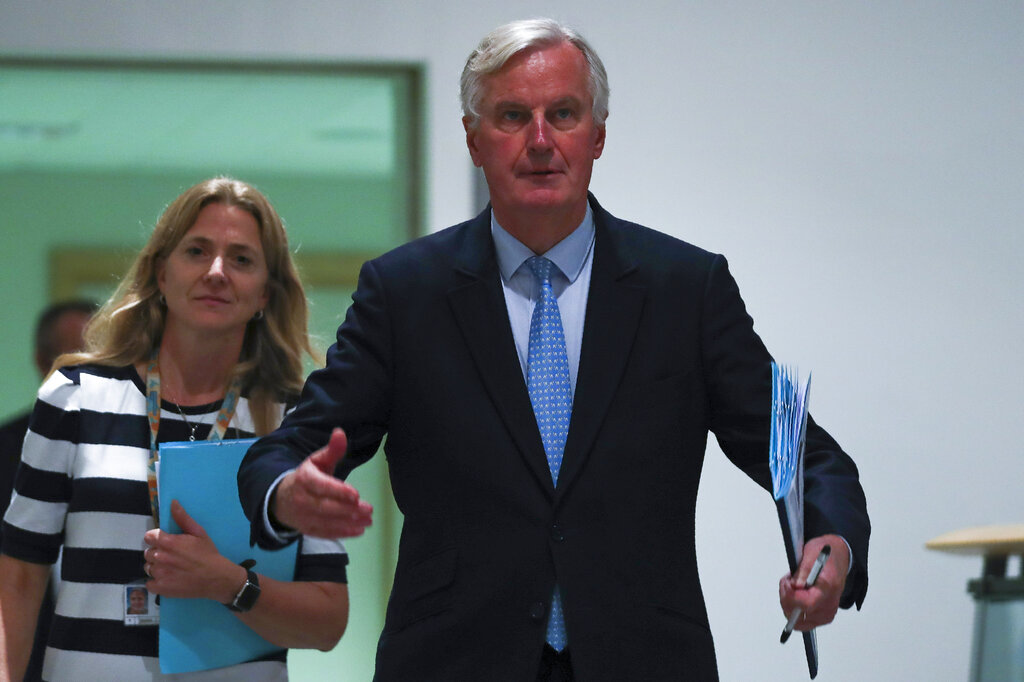Britain and the European Union said on Thursday that they have struck an outline Brexit deal after days of intense see-saw negotiations — though it must still be formally approved by the bloc and ratified by the European and UK Parliaments.
Hours before a summit of all 28 EU national leaders, European Commission President Jean-Claude Juncker tweeted: 'We have one! It's a fair and balanced agreement for the EU and the UK and it is testament to our commitment to find solutions.'
British Prime Minister Boris Johnson tweeted that the two sides had struck a 'great new deal' and urged the UK lawmakers to ratify it in a special session on Saturday.
The breakthrough came just hours after Johnson's Northern Irish government allies threw a spanner in the works by saying they couldn't support the draft agreement because of provisions for the Irish border.
The Prime Minister needs all the support he can get to push any deal past a deeply-divided Parliament.
It only added to the high anxiety that reigned on Thursday morning, as the last outstanding issues of the divorce papers were hammered out.
Technical negotiators again went into Wednesday night to fine-tune customs and sales tax regulations that will have to regulate trade in goods between the Northern Ireland and Ireland — where the UK and the EU share their only land border.
After months of gloom over the stalled Brexit process, European leaders have sounded upbeat this week. French President Emmanuel Macron said on Wednesday that 'I want to believe that a deal is being finalized,' while German Chancellor Angela Merkel said negotiations were 'in the final stretch.'
Johnson — who took office in July vowing Britain would finally leave the EU on October 31, come what may — was slightly more cautious. He likened Brexit to climbing Mount Everest, saying the summit was in sight, though still shrouded in cloud.
Northern Ireland's Democratic Unionist Party added to those clouds early Thursday. DUP leader Arlene Foster and the party's parliamentary chief Nigel Dodds said they 'could not support what is being suggested on customs and consent issues,' referring to a say the Northern Irish authorities might have in future developments.
Both the customs and consent arrangements are key to guaranteeing an open border between the UK's Northern Ireland and EU member Ireland — the main obstacle to a Brexit deal.
Foster and Dodds said they would continue to work with the UK government to get a 'sensible' deal. The problem is that the closer Johnson aligns himself with the DUP, the further he removes himself from the EU, leaving him walking a political tightrope.
Brexit negotiations have been here before — seemingly closing in on a deal that is dashed at the last moment. But hopes have risen that this time may be different.











